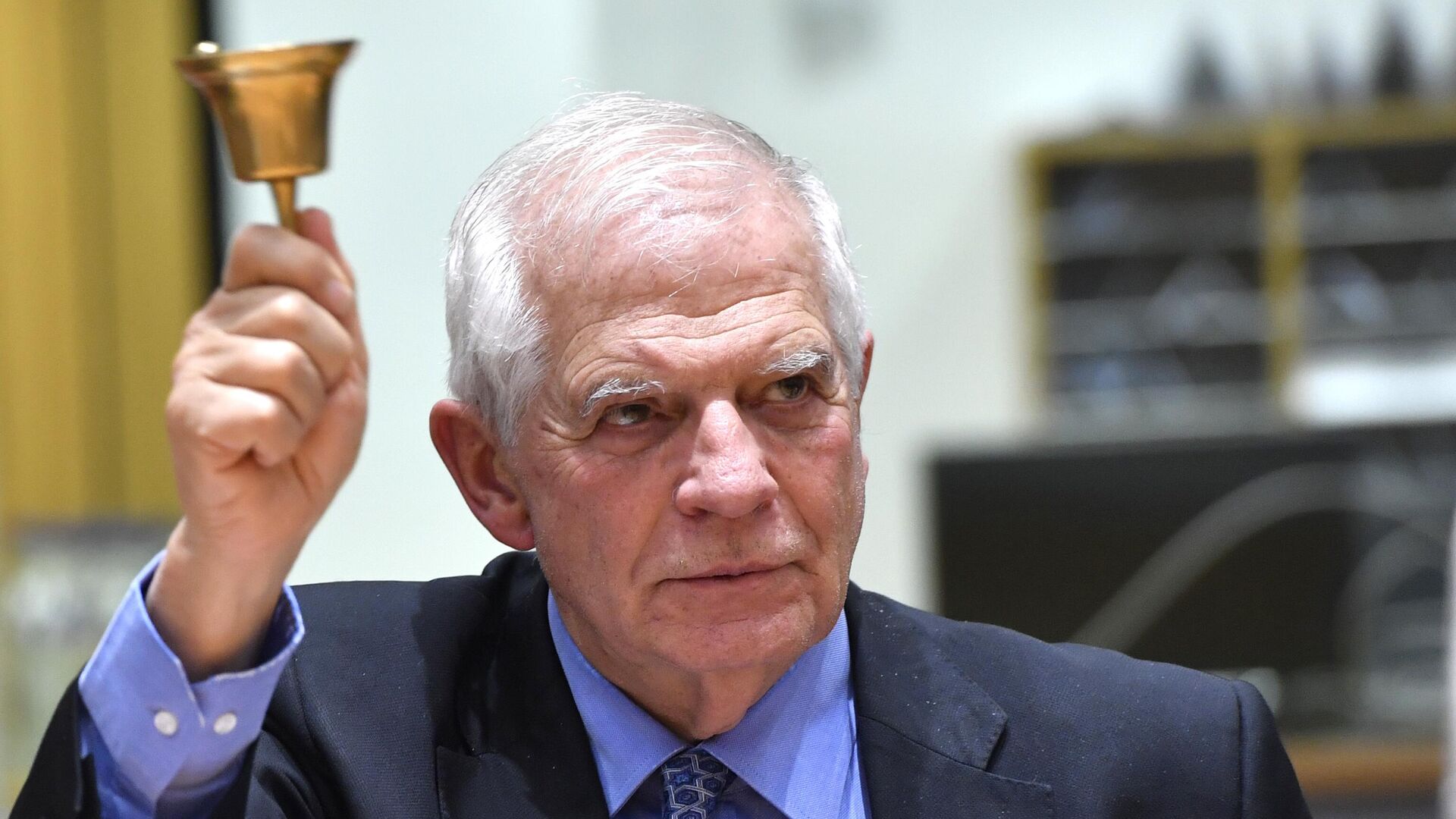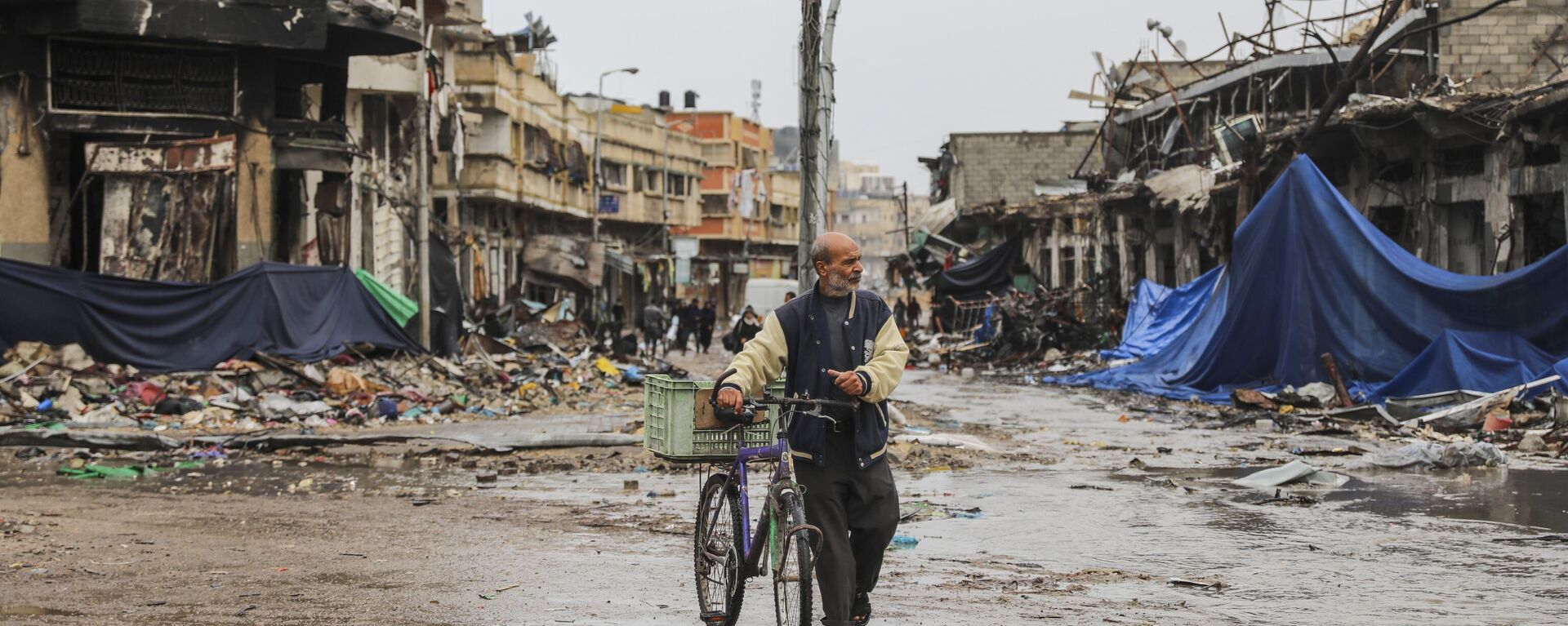https://en.sputniknews.africa/20240712/eu-diplomacy-chief-borrell-mocks-africans-who-support-russias-cause-1067477437.html
EU Diplomacy Chief Borrell Mocks Africans Who Support Russia's Cause
EU Diplomacy Chief Borrell Mocks Africans Who Support Russia's Cause
Sputnik Africa
Back in 2022, the EU's top diplomat faced fierce backlash for racism and colonial thinking, as Borrell once claimed that migrants, particularly from Africa... 12.07.2024, Sputnik Africa
2024-07-12T17:11+0200
2024-07-12T17:11+0200
2024-07-12T17:18+0200
international
russia-africa cooperation
josep borrell
europe
european union (eu)
russia
colonialism
neocolonialism
racism
viral news
https://cdn1.img.sputniknews.africa/img/07e7/04/12/1058677108_0:117:3072:1845_1920x0_80_0_0_28d5d6354fed96772db1506a16ae1b9a.jpg
The head of the EU's diplomacy, Josep Borrell, has expressed surprise at the extent of Africans' support for Russian President Vladimir Putin, in a rather racist and derogatory manner, though.Borrell stressed that a new strategy for defense was required, one that would put information warfare ahead of conventional military tactics.Borrell emphasized the significance of concentrating on the information war, which is fought inside people's heads rather than on a real battlefield.This is not the first instance of Borrell's derogatory remarks toward the African population. Also in 2022, he said that African nations backing Russia were ignorant of Vladimir Putin's identity or the location of the Donbass.Back then, Borrell was also chastised by Maria Zakharova, the spokesperson for the Russian Foreign Ministry, who referred to him as "a gardener posing as a high representative of EU foreign affairs" and reminded him of all the instances in which Western leaders had manifestly failed to grasp geopolitical issues.
https://en.sputniknews.africa/20231128/senseless-to-give-food-to-gazans-if-they-are-killed-the-next-day-borrell-says-1063824706.html
europe
russia
Sputnik Africa
feedback@sputniknews.com
+74956456601
MIA „Rossiya Segodnya“
2024
News
en_EN
Sputnik Africa
feedback@sputniknews.com
+74956456601
MIA „Rossiya Segodnya“
Sputnik Africa
feedback@sputniknews.com
+74956456601
MIA „Rossiya Segodnya“
international, russia-africa cooperation, josep borrell, europe, european union (eu), russia, colonialism, neocolonialism, racism, viral news
international, russia-africa cooperation, josep borrell, europe, european union (eu), russia, colonialism, neocolonialism, racism, viral news
EU Diplomacy Chief Borrell Mocks Africans Who Support Russia's Cause
17:11 12.07.2024 (Updated: 17:18 12.07.2024) Kirill Kurevlev
Managing Editor
Back in 2022, the EU's top diplomat faced fierce backlash for racism and colonial thinking, as Borrell once claimed that migrants, particularly from Africa, were leaving their "jungles" in favor of Europe's "gardens."
The head of the EU's diplomacy, Josep Borrell, has expressed surprise at the extent of Africans' support for Russian President Vladimir Putin, in a rather racist and derogatory manner, though.
"In Africa, people support Putin. They say Putin saved Donbass. Saying Putin has saved Donbass, now he will come to Africa and save us," Borrell stated during his remarks at the NATO Public Forum on Thursday. "What kind of intellectual process is behind this kind of attitude?"
Borrell
stressed that a new strategy for defense was required, one that would put information warfare ahead of conventional military tactics.
“We need a different army. We need people watching the network and people explaining what is going on, reprogramming the listeners, giving them correct information, in order to prevent an intervention in electoral processes,” the EU foreign policy chief stated.
Borrell emphasized the significance of concentrating on the information war, which is fought inside people's heads rather than on a real battlefield.
“We don’t need to drop bombs or deploy tanks; we need to disseminate news and occupy cyberspace. The EU is very active in this area,” he claimed.
This is not the first instance of Borrell's derogatory remarks toward the African population. Also in 2022, he said that African nations backing Russia were ignorant of Vladimir Putin's identity or the location of the Donbass.
Back then, Borrell was also chastised by Maria Zakharova, the spokesperson for the Russian Foreign Ministry, who referred to him as "a gardener posing as a high representative of EU foreign affairs" and reminded him of all the instances in which Western leaders had manifestly failed to grasp geopolitical issues.


